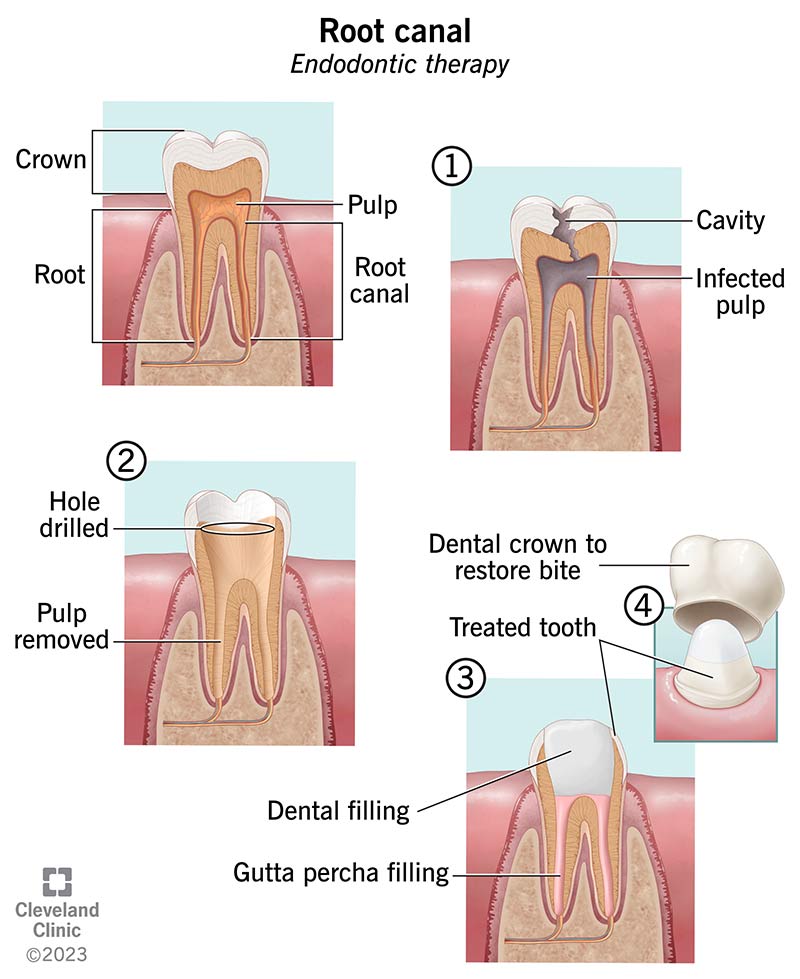When Will Root Canal Sensitivity Stop? Healing Guide

Root canal sensitivity is a common phenomenon that can occur after undergoing a root canal procedure. The sensitivity can range from mild to severe and can be quite uncomfortable for the patient. It’s essential to understand that root canal sensitivity is usually a temporary condition, and with proper care and time, it can subside.
Understanding Root Canal Sensitivity
Root canal sensitivity occurs when the pulp of the tooth, which contains nerves and blood vessels, is removed during the root canal procedure. This can cause the tooth to become sensitive to temperature changes, biting, and chewing. The sensitivity can also be caused by the infection that led to the need for the root canal in the first place.
Factors That Affect Root Canal Sensitivity
Several factors can influence the duration and severity of root canal sensitivity. These include:
- The complexity of the procedure: More complex procedures may lead to increased sensitivity.
- The skill of the dentist: An experienced dentist can minimize the risk of sensitivity.
- The overall health of the tooth: Teeth with significant decay or cracks may be more prone to sensitivity.
- The patient’s pain threshold: Some people may be more sensitive to pain than others.
When Will Root Canal Sensitivity Stop?
The duration of root canal sensitivity can vary from person to person. In most cases, the sensitivity will subside within a few days to a week after the procedure. However, in some cases, it can take several weeks or even months for the sensitivity to completely disappear.
Here’s a general outline of what you can expect:
- First 24-48 hours: Sensitivity is usually at its peak during this period.
- 2-7 days: Sensitivity starts to subside, but the tooth may still be sensitive to temperature changes and biting.
- 1-2 weeks: Sensitivity continues to decrease, and the tooth becomes less sensitive to temperature changes.
- 2-6 weeks: Sensitivity should be significantly reduced, and the tooth should be able to withstand normal chewing and biting forces.
- 3-6 months: Any remaining sensitivity should be minimal, and the tooth should be fully restored to its normal function.
Healing Guide: Tips to Reduce Root Canal Sensitivity
While the sensitivity will eventually subside on its own, there are several things you can do to reduce the discomfort and promote healing:
- Follow your dentist’s instructions: Take any medication as prescribed, and follow the recommended oral care routine.
- Use a soft-bristled toothbrush: Avoid using a hard-bristled toothbrush, which can irritate the gums and tooth.
- Avoid chewing on the affected tooth: Try to chew on the opposite side of your mouth to reduce pressure on the affected tooth.
- Use a desensitizing toothpaste: Toothpastes containing potassium nitrate or strontium chloride can help reduce sensitivity.
- Apply a cold compress: A cold compress can help reduce swelling and ease pain.
- Take over-the-counter pain medication: Pain relievers such as ibuprofen or acetaminophen can help manage pain and discomfort.
FAQ Section
What can I do to reduce root canal sensitivity?
+To reduce root canal sensitivity, follow your dentist's instructions, use a soft-bristled toothbrush, avoid chewing on the affected tooth, use a desensitizing toothpaste, apply a cold compress, and take over-the-counter pain medication as needed.
How long does root canal sensitivity last?
+Root canal sensitivity can last anywhere from a few days to several weeks or even months. In most cases, the sensitivity will subside within 2-6 weeks.
What are the factors that affect root canal sensitivity?
+The factors that affect root canal sensitivity include the complexity of the procedure, the skill of the dentist, the overall health of the tooth, and the patient's pain threshold.
By following these tips and understanding the factors that affect root canal sensitivity, you can reduce the discomfort and promote healing. Remember, if the sensitivity persists or worsens over time, it’s essential to consult your dentist for further guidance and treatment.